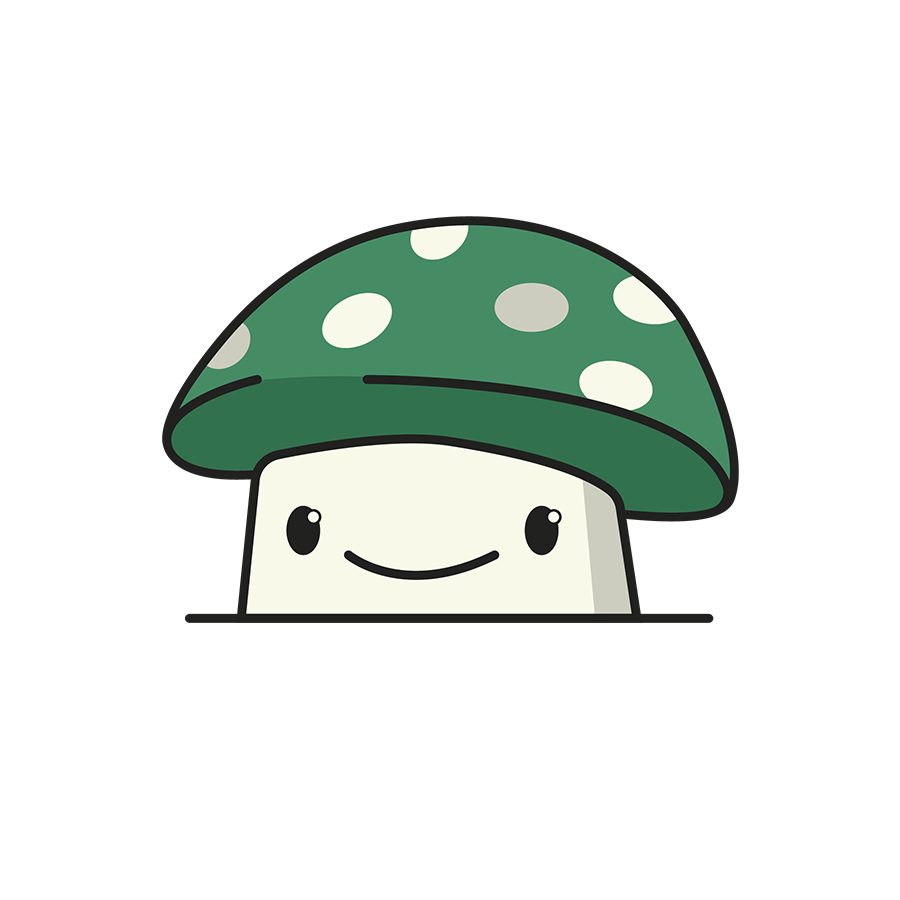Mushrooms have been revered for centuries for their medicinal properties and culinary uses. In recent years, scientific research has shed light on the remarkable cognitive benefits of various mushroom species. From enhancing memory to reducing inflammation, mushrooms for brain health are gaining recognition as powerful allies in our quest for mental clarity and cognitive longevity.
This article explores six evidence-based ways that mushrooms can boost brain health and sharpen your focus, including the rising popularity of convenient options like Reishi gummies.
1. The Top Benefit of Mushrooms: Brain Health and Neurogenesis
One of the most exciting ways mushrooms boost brain health is through their neuroprotective and neurogenic properties. Several mushroom species contain compounds that can protect existing neurons from damage and even stimulate the growth of new brain cells.
Lion’s Mane: The Brain’s Best Friend
Lion’s Mane (Hericium erinaceus) stands out as a superstar when it comes to mushrooms for brain health. Research has shown that Lion’s Mane contains two unique compounds, hericenones and erinacines, which can stimulate the production of nerve growth factor (NGF) in the brain. NGF is crucial for the growth, maintenance, and survival of neurons.
A 2016 study by the Alzheimer’s Drug Discovery Foundation demonstrated that lion’s mane extract significantly improved cognitive function in mice with Alzheimer’s disease-like symptoms. The extract was observed to reduce amyloid plaque burden, increase the expression of an enzyme that degrades Abeta, elevate the ratio of active NGF to precursor NGF, stimulate neurogenesis, and mitigate the decline in normal daily living activities. Beyond these specific benefits, lion’s mane is also believed to contribute to overall brain health by reducing inflammation, increasing nerve growth factor release, and enhancing mental performance speed.
Reishi: The Mushroom of Immortality
Reishi (Ganoderma lucidum), often called the “mushroom of immortality,” has been used in traditional medicine for thousands of years. Modern research is now validating its neuroprotective effects. A 2014 study demonstrated that Reishi extract protected neurons against oxidative stress and reduced inflammation in the brain.
For those seeking a convenient way to incorporate Reishi into their daily routine, Reishi gummies have become a popular option. These tasty supplements offer a simple method to harness the brain-boosting benefits of this powerful mushroom.
2. Improved Memory and Cognitive Function
Mushrooms for brain health have shown promising results in enhancing memory and overall cognitive function. This is particularly important as we age and face increased risk of cognitive decline.
Cordyceps: Boosting Memory and Learning
Cordyceps, a genus of parasitic fungi, has been found to have significant effects on memory and learning. A 2018 study published in Evidence-Based Complementary and Alternative Medicine showed that Cordyceps militaris extract improved memory and learning in scopolamine-induced memory impairment in rats.
The researchers observed increased levels of acetylcholine, a neurotransmitter crucial for memory and learning, in the brains of rats treated with Cordyceps extract. This suggests that Cordyceps, in the form of even Cordyceps gummies, could potentially be used to support cognitive function in conditions like Alzheimer’s disease, where acetylcholine levels are typically low.
Chaga: Enhancing Cognitive Performance
Chaga (Inonotus obliquus) is another mushroom gaining attention for its cognitive benefits. A 2019 study in the International Journal of Medicinal Mushrooms found that Chaga extract improved cognitive performance in rats exposed to chronic stress. The mushroom’s antioxidant properties were thought to play a key role in protecting the brain from stress-induced damage.
3. Reduced Inflammation and Oxidative Stress
Chronic inflammation and oxidative stress are major contributors to cognitive decline and neurodegenerative diseases. Many mushrooms for brain health possess powerful anti-inflammatory and antioxidant properties that can help combat these harmful processes.
Turkey Tail: A Potent Anti-Inflammatory
Turkey Tail (Trametes versicolor) is renowned for its immune-boosting properties, but it also shows promise in reducing brain inflammation. A 2019 study in the Journal of Neuroinflammation demonstrated that polysaccharopeptide (PSP) from Turkey Tail mushroom reduced neuroinflammation in a mouse model of Alzheimer’s disease.

The researchers observed decreased levels of pro-inflammatory cytokines and increased levels of anti-inflammatory molecules in the brains of mice treated with PSP. This suggests that Turkey Tail could potentially help protect against neuroinflammation-related cognitive decline.
Shiitake: Antioxidant Powerhouse
Shiitake mushrooms (Lentinus edodes) are not only delicious but also packed with antioxidants that can benefit brain health. A 2021 study ound that Shiitake mushroom extract protected against oxidative stress-induced neurotoxicity in cell cultures and their beneficial effect on Alzheimer’s disease.
The researchers attributed this protective effect to the mushroom’s high content of ergothioneine, a unique antioxidant amino acid. Ergothioneine has been shown to accumulate in the brain and may play a crucial role in protecting neurons from oxidative damage.
4. Enhanced Mood and Reduced Anxiety
The connection between mental health and cognitive function is well-established. Mushrooms for brain health can also positively impact mood and reduce anxiety, indirectly supporting overall cognitive performance.
Reishi Mushrooms: The Stress-Reducer
Reishi mushrooms have adaptogenic properties, meaning they can help the body adapt to stress and maintain balance. A 2011 study published in Frontiers in Pharmacology found that Reishi extract reduced anxiety-like behaviors in mice and increased levels of GABA, a neurotransmitter that promotes relaxation.
Reishi gummies offer a convenient and enjoyable way to incorporate this stress-reducing mushroom into your daily routine. By helping to manage stress and anxiety, Reishi can indirectly support cognitive function and focus.
Lion’s Mane: Mood Booster
In addition to its neuroprotective effects, Lion’s Mane has also been shown to have mood-enhancing properties. A 2019 study in the journal Heliyon found that Lion’s Mane extract reduced depressive behaviors in mice and increased the expression of brain-derived neurotrophic factor (BDNF), a protein crucial for neuroplasticity and mood regulation.
5. Improved Sleep Quality
Quality sleep is essential for cognitive function, memory consolidation, and overall brain health. Some mushrooms for brain health have been found to promote better sleep, indirectly supporting cognitive performance.
Reishi: The Sleep Enhancer
Reishi mushrooms have long been used in traditional medicine to promote restful sleep. Reishi extract has also been found to improve sleep quality and duration in rats with chronic sleep deprivation.
The researchers observed increased levels of adenosine, a neurotransmitter that promotes sleep, in the brains of rats treated with Reishi extract. For those struggling with sleep issues, Reishi gummies taken before bedtime might offer a natural way to improve sleep quality and, consequently, cognitive function.
Cordyceps: Balancing the Circadian Rhythm
Cordyceps mushrooms may also play a role in regulating sleep-wake cycles. A 2017 study in the Journal of Ethnopharmacology found that Cordyceps militaris extract helped normalize circadian rhythms in mice with jet lag-like conditions.
By supporting healthy sleep patterns, Cordyceps gummies could indirectly contribute to improved cognitive function and focus during waking hours.
6. Enhanced Brain Energy Metabolism
The brain is an energy-hungry organ, consuming about 20% of the body’s total energy despite accounting for only 2% of its weight. Some mushrooms for brain health have been found to support brain energy metabolism, potentially leading to improved cognitive performance.
Cordyceps: Boosting ATP Production
Cordyceps mushrooms are known for their ability to enhance energy production at the cellular level. A 2015 study in the Journal of Dietary Supplements found that Cordyceps sinensis increased ATP production in the brains of exercise-trained rats.
ATP (adenosine triphosphate) is the primary energy currency of cells, including neurons. By boosting ATP production, Cordyceps, including Cordyceps gummies, may help support optimal brain function and cognitive performance, especially during mentally demanding tasks.
Lion’s Mane: Supporting Mitochondrial Function
Lion’s Mane mushroom has been found to support mitochondrial function in the brain. A 2020 study in the International Journal of Molecular Sciences demonstrated that Lion’s Mane extract improved mitochondrial function and reduced oxidative stress in a mouse model of Alzheimer’s disease.
Healthy mitochondria are crucial for efficient energy production in brain cells. By supporting mitochondrial function, Lion’s Mane may help maintain optimal cognitive performance and protect against age-related cognitive decline.
Understanding The Gut-Brain Axis
How Mushrooms Support Cognitive Function Through Digestive Health
An exciting area of research in cognitive health is the gut-brain axis – the bidirectional communication system between the gastrointestinal tract and the central nervous system. Many mushrooms contain prebiotic fibers and other compounds that can positively influence gut microbiota, potentially leading to improved cognitive function.
Prebiotic Power of Mushrooms
Mushrooms like Lion’s Mane, Reishi, and Chaga contain beta-glucans and other prebiotic fibers that can nourish beneficial gut bacteria. A healthy gut microbiome has been linked to improved mood, reduced inflammation, and better cognitive function.
A 2021 review in the journal Nutrients highlighted the potential of medicinal mushrooms to modulate the gut microbiota and, in turn, influence brain health through the gut-brain axis. The authors noted that mushroom polysaccharides could enhance the growth of beneficial bacteria like Bifidobacterium and Lactobacillus species, which have been associated with improved cognitive function and mood regulation.
Mushrooms and Short-Chain Fatty Acids
When gut bacteria ferment prebiotic fibers from mushrooms, they produce short-chain fatty acids (SCFAs) like butyrate, propionate, and acetate. These SCFAs have been shown to have neuroprotective effects and may play a role in reducing neuroinflammation.
A 2019 study in the journal Molecular Psychiatry found that SCFAs produced by gut bacteria could cross the blood-brain barrier and directly influence brain function. The researchers observed that SCFAs could modulate microglia (the brain’s immune cells) and potentially protect against neurodegenerative diseases.
Synergistic Effects: Combining Mushrooms for Enhanced Cognitive Benefits
While individual mushroom species offer unique cognitive benefits, there’s growing interest in the potential synergistic effects of combining different mushrooms. This concept, known as “entourage effect” in herbal medicine, suggests that the compounds in various mushrooms may work together to produce enhanced results.
Mushroom Blends for Comprehensive Brain Support
Some supplement manufacturers are now offering mushroom blends that combine species like Lion’s Mane, Reishi, Cordyceps, and Chaga. These formulations aim to provide a broad spectrum of cognitive benefits, from neuroprotection and improved memory to stress reduction and enhanced focus.
A 2020 study in the Journal of Alzheimer’s Disease reported that a combination of Lion’s Mane, Reishi, and Cordyceps extracts showed greater neuroprotective effects in cell cultures than any single mushroom extract alone. The researchers observed enhanced neurite outgrowth and reduced beta-amyloid toxicity with the mushroom combination.
Personalizing Mushroom Protocols
As research in this field progresses, we may see more personalized approaches to using mushrooms for brain health. Factors such as an individual’s genetic profile, gut microbiome composition, and specific cognitive concerns could inform tailored mushroom protocols for optimal results.
The Future of Mushroom Research and Cognitive Health
The field of mushroom research for brain health is rapidly evolving, with new studies constantly uncovering novel compounds and mechanisms of action. As our understanding of the intricate relationships between mushrooms, the gut microbiome, and cognitive function deepens, we may see innovative applications in the prevention and treatment of neurodegenerative diseases.
Emerging technologies like neuroimaging and advanced -omics approaches (genomics, proteomics, metabolomics) are allowing researchers to gain unprecedented insights into how mushrooms interact with the brain. These tools may help identify new bioactive compounds and elucidate the complex pathways through which mushrooms support cognitive health.
As interest in natural cognitive enhancers grows, mushrooms are likely to play an increasingly important role in our approach to brain health and performance optimization. Whether consumed as whole foods, extracts, or convenient forms like gummies, these remarkable fungi offer a promising avenue for supporting cognitive function and overall well-being in our increasingly demanding world.
Conclusion on Brain Boosting Mushrooms
The growing body of research on mushrooms for brain health is exciting and promising. From neuroprotection and improved memory to reduced inflammation and enhanced mood, these fascinating fungi offer a multitude of cognitive benefits. As we continue to uncover the secrets of medicinal mushrooms, incorporating them into our daily routines through whole mushrooms, extracts, or convenient options like Cordyceps gummies may prove to be a valuable strategy for maintaining and enhancing cognitive health.
It’s important to note that while the research is promising, more human clinical trials are needed to fully understand the effects of mushrooms on brain health. Always consult with a healthcare professional before adding new supplements to your routine, especially if you have existing health conditions or are taking medications.
As we face increasing cognitive challenges in our fast-paced, information-rich world, the potential of mushrooms to boost brain health and sharpen focus is more relevant than ever. By harnessing the power of these remarkable organisms, we may be able to support our cognitive function, protect our brains from age-related decline, and maintain mental clarity throughout our lives. Whether you choose to enjoy mushrooms in your meals, take extracts, or opt for convenient forms like Reishi gummies, exploring the world of mushrooms for brain health could be a game-changer for your cognitive well-being.


